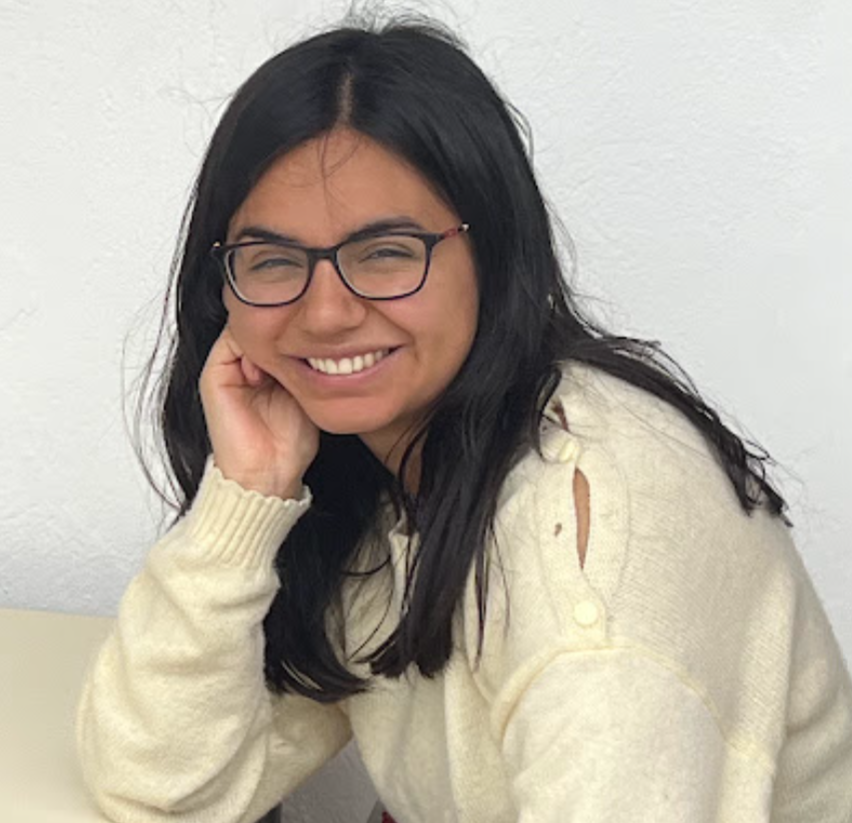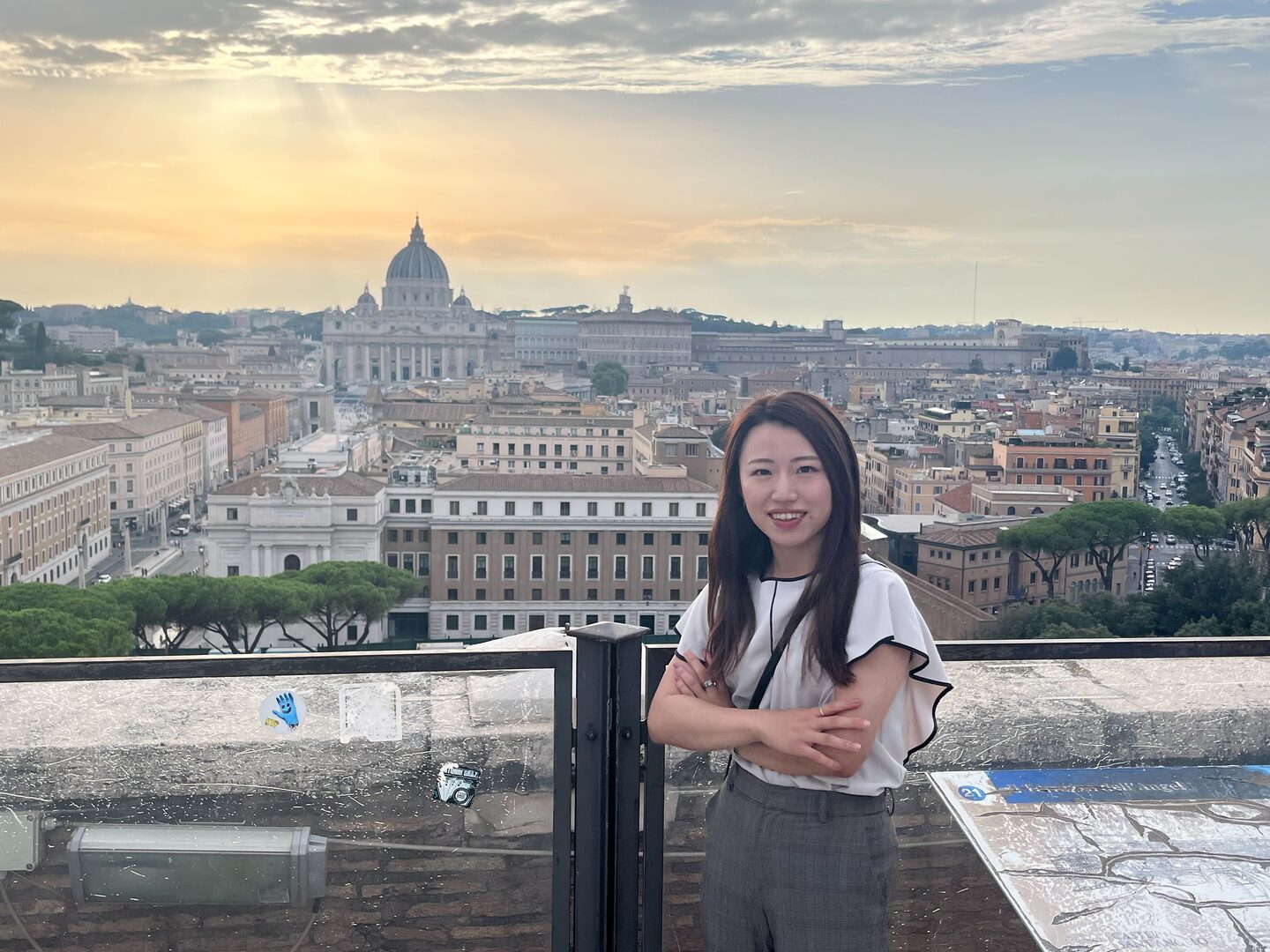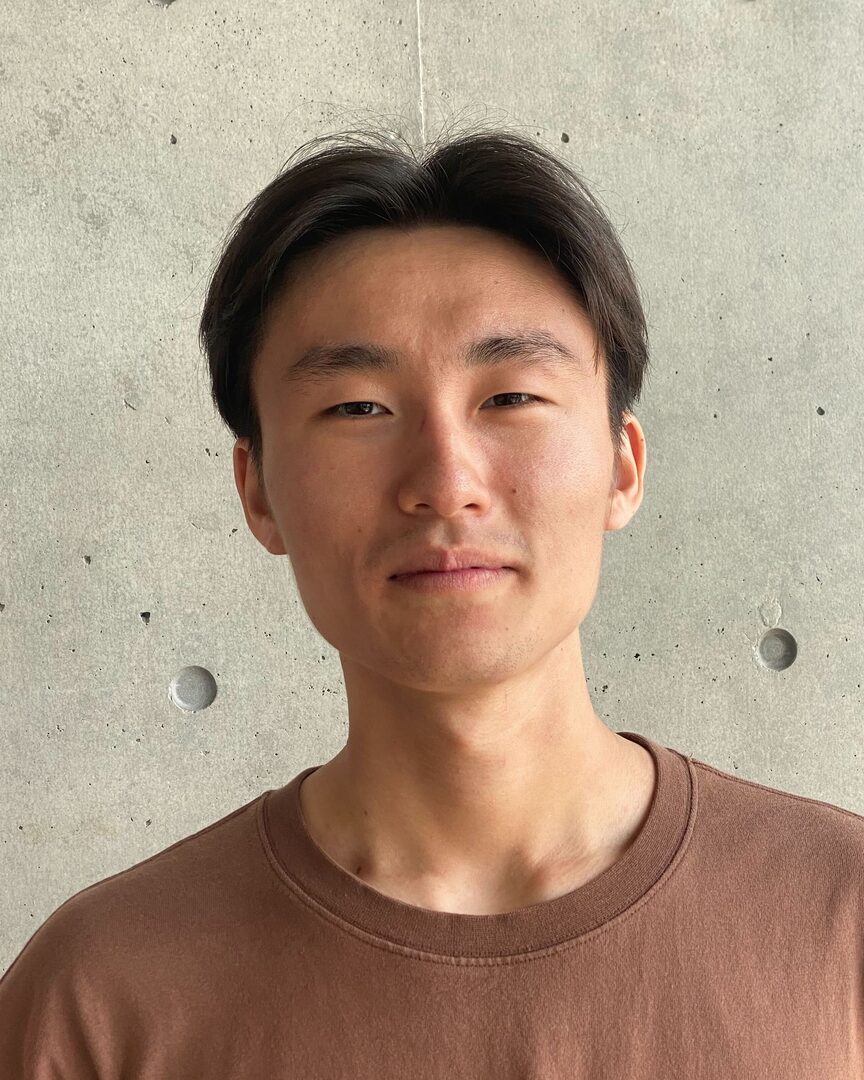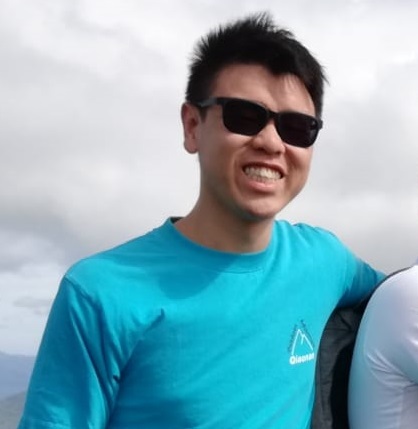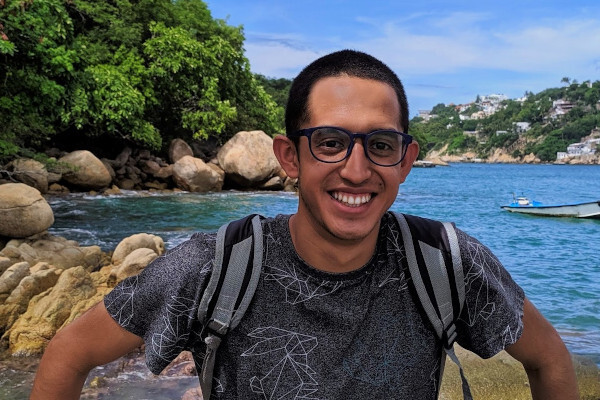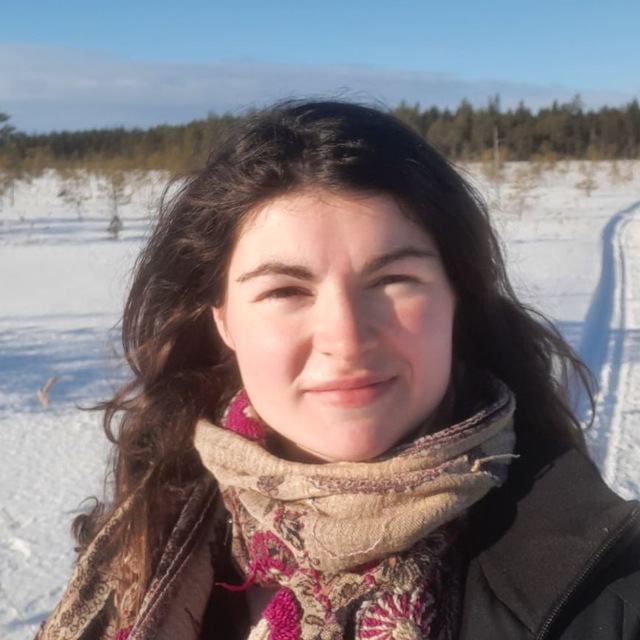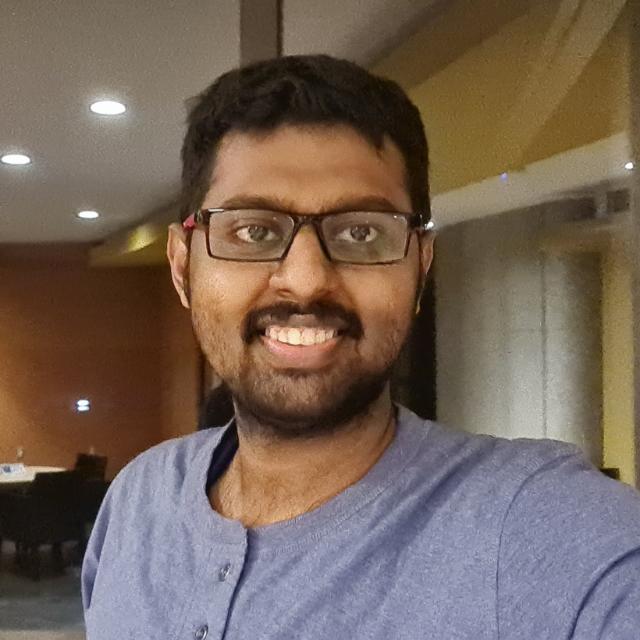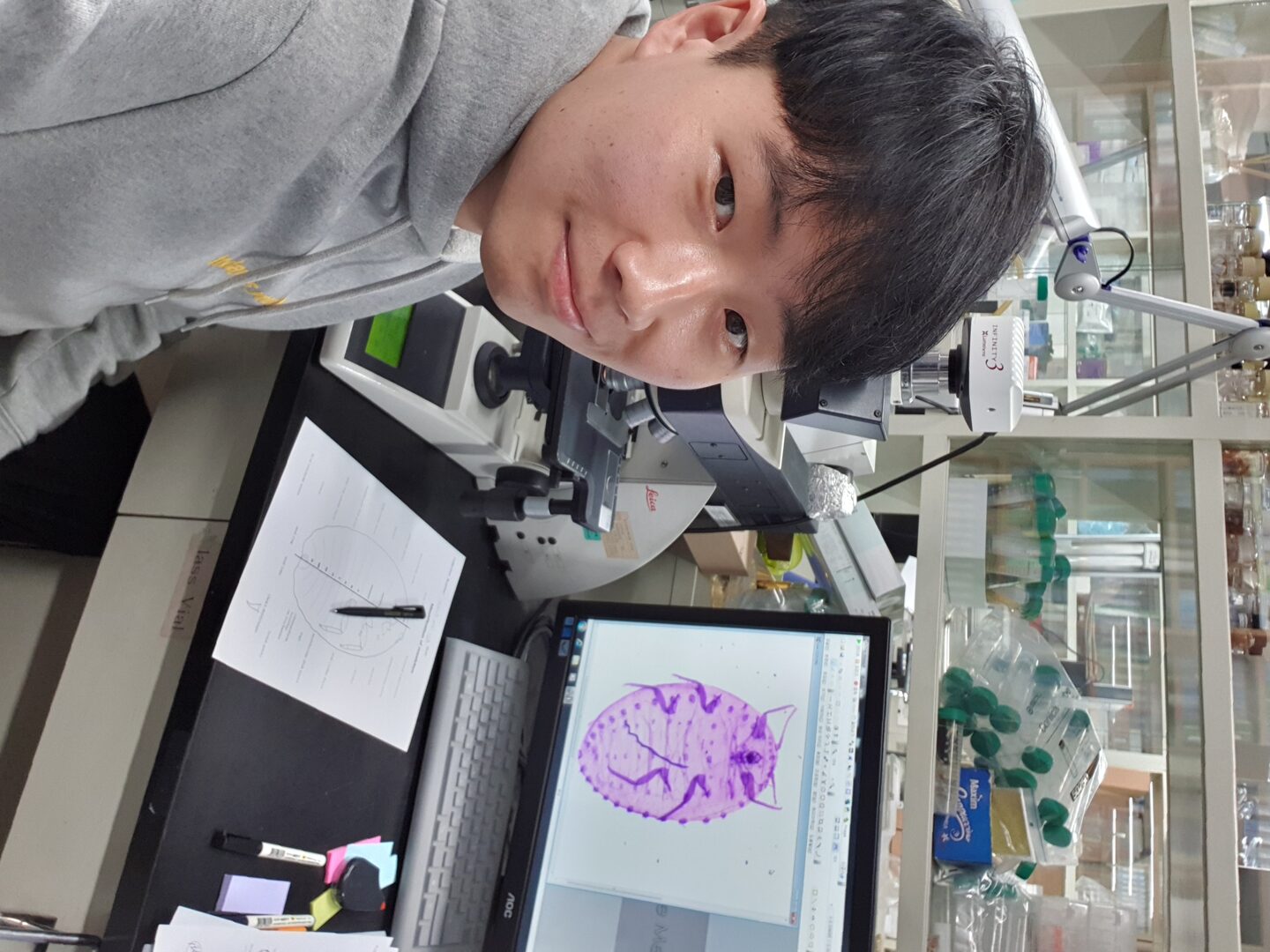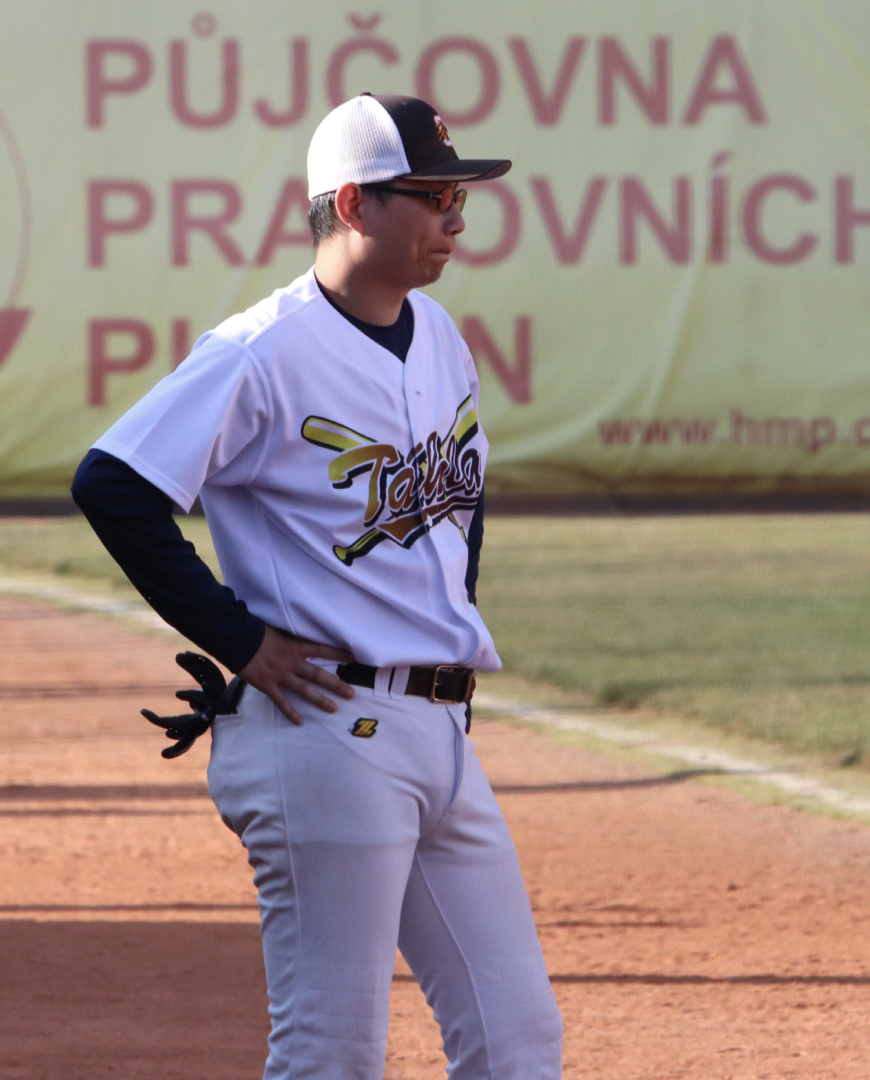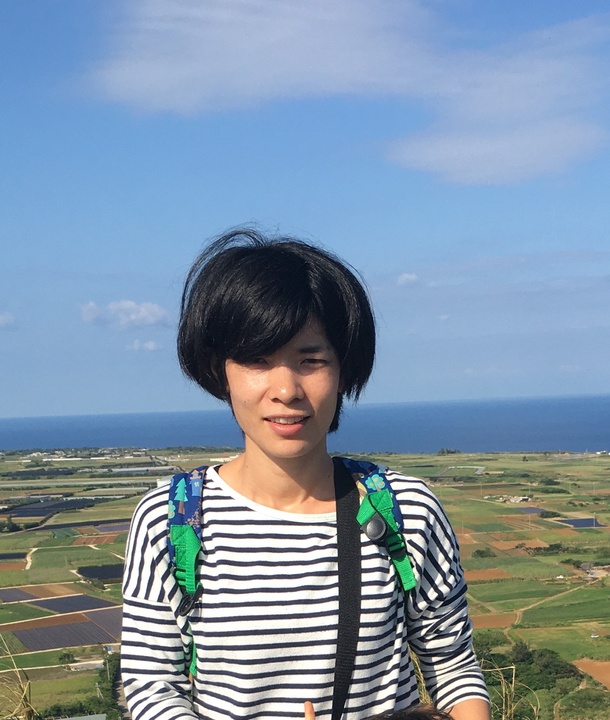Members
Current members
Teresa Bosch Tamayo, PhD student (Rotation Student May-Aug 2024)
I am Spanish-Mexican raised among the tulip fields and windmills of the Netherlands (my Dutch is still pretty bad, though). I have a BSc and MSc in Molecular Life Sciences from Wageningen University & Research, where I specialized in Physical Chemistry. My research interests lie in polymer chemistry, nanotechnology and lately also marine biology. I am really excited to do my out-of-field rotation at Husnik’s unit where I will study coral endosymbionts. I am looking forward to acquiring skills in general microbiology and metagenomics. Outside of research, I love drawing, going snorkeling and enjoying surrealistic masterpieces like Spongebob.
Yufu Unten, Visiting Researcher, Suntory (Apr-Jun 2024)
I am interested in communication between mitochondria and other organelles, particularly in mammalian cells. I usually use confocal microscopy as my main method of observation, but at OIST I aim to analyze organelle interactions using electron microscopy. From the analysis of organelle communication, I would like to clarify the interests of host cells in mitochondrial symbiosis. In my free time, I often watch a soccer game, train and cook.
Vasyl Vaskivskyi, PhD Student (Rotation Student Jan-Apr 2024)
I am interested in the evolution of plastids. Plastid is an ancient organelle that originated thanks to the endosymbiosis with photosynthetic cyanobacteria. Some modern organisms also happen to have similar symbioses. In my project, I want to use a protist that bears a photosynthetic cyanobacterial symbiont and compare it to a heterotrophic relative from the same lineage. My goal is to expose differences in gene expression that allow this symbiosis to arise and thrive. Before coming to OIST, I worked as an Imaging Bioinformatician at Wellcome Sanger Institute and HuBMAP Consortium in the UK where I focused on the development of processing pipelines for imaging spatial omics data such as CODEX, CellDive, MIBI, and IMS. In my free time, I enjoy getting lost in new places, hiking, computer graphics, and a bit of math.
Masaru Sanari, Research Intern (Oct 2023 - Mar 2024)
I have been fascinated by microscopic observations and cultivations of microorganisms. For my undergraduate project, I was focusing on microorganisms inhabiting extreme environments.
During my internship, I would like to put emphasis on wet approaches from Winogradsky Column to high resolution microscopic analysis while keeping a good balance with dry analysis to fulfill the gap in the evolution of microorganisms.
Apart from my research, I like learning languages, playing piano, table tennis, marine activity, and simple work out.
Akito Shima, Research Intern (Oct 2023 - Mar 2024)
Anastasia Borodina, Ph.D. student (Rotation Student Jan-May 2024)
My path in biology began with research in biophysics. As an undergraduate student, I studied the patterns of structural organization of glycosidases: internal cavities, tunnels, and pores in the composition of monomers and dimers of exo- and endoinulinases. As a master's candidate, I was inspired by research in the field of protistology, and my master's thesis was devoted to the study of morphology, ecology, and molecular phylogeny of telonemids. I am interested in reconstructing the phylogenetic tree and the early evolution of eukaryotes through genomic and morphological studies of protists, as well as in studying their biodiversity and ecology. Apart from my research, I am passionate about learning to play musical instruments, hiking, painting watercolors, and learning Spanish and Arabic.
Arno Hagenbeek, Ph.D. Student (Rotation Student May-Aug 2022)
I am interested in microbial biology, particularly microbe-microbe and microbe-host interactions. I am especially intrigued by symbiotic microbiomes as they usually involve a complex network of interactions between the microbes as well as the hosting organism. Previously, I have analyzed microbiomes in a wide variety of organisms, ranging from Arabidopsis rhizosphere to the human intestine. For my Ph.D. thesis in the Husnik unit, I aim to map the microbiomes of microscopic marine invertebrates which remain highly understudied. In my free time, I enjoy playing piano, hiking, and martial arts.
Yong Heng Phua, Ph.D. Student (Rotation Student May-Aug 2022)
I have been working on different species of benthic dinoflagellates (Coolia, Ostreopsis, and Amphidinium spp.) during my undergraduate course. I have also worked for five months as a research intern in the Husnik Unit and started exploring the role of bacterial symbionts in diverse aspects of dinoflagellate biology (e.g. toxin production or photosynthesis). During my rotation, I plan to explore symbiotic interactions between marine dinoflagellates from Okinawa and their endosymbionts. When I am not working, I am usually cooking or hiking in the mountains.
Javier Tejeda Mora, PhD Student
I am interestred in the underlaying paterns that hide within the sea of information that recent techniques have allowed access to. I did my bachelor thesis project at CICESE in Mexico where I was introduced to metabolomics. I analyzed data from metabolites of a wide range of microorganisms. During my PhD in the Husnik Unit, my aim is to perform metabolomics analyses that will help to elucidate diverse host-symbiont interactions. Outside of work I enjoy sports (mainly those that involve a raquet) and videogames
Vera Emelianenko, Ph.D. student (Rotation Student Jan - Apr 2023)
I am broadly interested in marine invertebrates and their relationships with symbionts. During my rotation, I will compare Symbiodiniaceae distribution across different hosts (corals, foraminifera, possibly clams) and environments (seawater and sediment). Besides that, I am extremely curious to know what kinds of animals you can find in different environments around Okinawa, so I’ll be also helping with Arno’s project exploring marine and mangrove meiofauna. In my free time, I enjoy hiking, snorkeling, and diving (still haven’t done it much in Okinawa!), also trying to learn photography and social dancing (such as salsa and west coast swing).
Pradeep Palanichamy, PhD Student
I have a long-term scientific interest and fascination for insect-microbe symbiosis because it can provide novel avenues for the control of agricultural pest insects through targeted manipulation of the symbionts or the insect-symbiont associations. In particular, I am interested in studying the functional role of bacterial endosymbionts and other microbes in insects adaptation, nutrition, defense, metabolism, detoxification, immune functions and pest control. Insect symbionts can be also interesting sources of biotechnological applications. In the Husnik Unit, my research focuses on the interplay between scale insects and their symbiotic microbes using microscopy, molecular and omics techniques. Apart from work, I enjoy cricket, football, table tennis and playing video games.
Jinyeong Choi, Postdoctoral Scholar
I am interested in the evolution of plant-feeding insects and their microbial symbionts. Specifically, my research focuses on understanding the role of symbiont replacements and host niche expansion on diversification of scale insects. Previously, I have studied the taxonomy and phylogeny of scale insects, especially mealybugs (Pseudococcidae) and soft scales (Coccidae). In my research, I try to combine comparative genomics, microscopy, insect systematics, ecology, and phylogenomics to approach my scientific questions. To have even more fun, I enjoy outdoors activities such as swimming, skin diving, fly fishing, as well as collecting scale insects!
Yi-Kai Fang, Research Technician
I studied in medical parasitology, mostly Trichomonas vaginalis, and mitochondrial-related organelle (MRO) hydrogenosome in my PhD in Taiwan. My previously work in Charles University, Czech Republic, leads me into a more fascinating world, protistology. By using proteomics and immunofluorescence assay, the complexity and beauty of these small creatures were revealed. I am now gazing around in this interesting world and seeing where it will take me to.
I am a cat person and wishing to discover more feline friends in Okinawa. If you have your own cats, please share their cuteness with me. I also like baseball and play slow-pitch softball. If you like them as well, we can go together for exercise or watch games sometime.
Yumiko Masukagami, Research Technician
I am interested in host-symbiont interactions and reductive genome evolution in bacteria. My research focuses on how the simplest self-replicating bacteria such as Mycoplasma spp. persist in the host and how bacteria become symbiotic in the host cells. I previously worked as a postdoc at the National Institute of Animal Health in Tsukuba and in the Membranology Unit at OIST. Apart from science, I enjoy my time with family and our cats, badminton, and exploring Okinawa.
Sachie Matsuoka, Research Unit Administrator
I've been working as an RUA ever since I moved to Okinawa in 2013. I'm grateful for the chance to be a part of ECBSU, and hope to contribute to unit operation in some way. I'm interested in all living creatures (particularly birds), folk crafts, farming, and marine activities.




